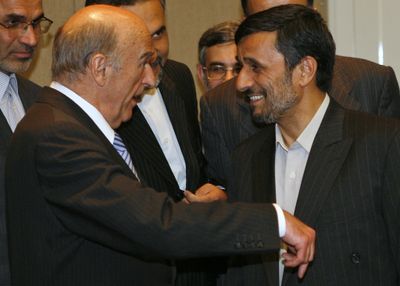Racism summit boycott grows
U.S., seven other countries pull out of U.N. conference

GENEVA – The United Nations opens its first global racism conference in eight years today with the U.S. and at least seven other countries boycotting the event out of concern that Islamic countries will demand that it denounce Israel and ban criticism of Islam.
The administration of President Barack Obama, America’s first black head of state, announced Saturday that it would boycott “with regret” the weeklong meeting in Geneva, which already is experiencing much of the bickering and political infighting that marred the 2001 conference in Durban, South Africa.
The Netherlands, Germany and New Zealand announced their boycotts Sunday and today, while Australia, Canada, Israel and Italy already had said they would not attend.
“I would love to be involved in a useful conference that addressed continuing issues of racism and discrimination around the globe,” Obama said in Trinidad on Sunday after attending the Summit of the Americas. But he said the language of the U.N.’s draft declaration risked a reprise of Durban, during which “folks expressed antagonism toward Israel in ways that were oftentimes completely hypocritical and counterproductive.”
Some European countries are still deciding whether to attend the U.N. conference, which runs through April 24.
At the Vatican, Pope Benedict XVI said the conference is needed to eliminate racial intolerance around the world. Asia News, a Catholic news agency that is part of the missionary arm of the Vatican, said of the pope’s comment: “The Holy See is distancing itself from the criticisms of some Western countries.”
“I am shocked and deeply disappointed by the United States’ decision not to attend,” said U.N. human rights chief Navi Pillay. She conceded some countries were focusing solely on one or two issues to the detriment of the fight against intolerance, but said it is essential that the issue of racism be tackled globally.
The major sticking points regarding the proposed final U.N. declaration are its implied criticism of Israel and an attempt by Muslim governments to ban all criticism of Islam, Shariah law, the prophet Muhammad and other tenets of their faith.
Iranian President Mahmoud Ahmadinejad – who repeatedly has called for the destruction of Israel and denied the Holocaust – is slated to speak on the first day. He arrived in Geneva on Sunday evening and met privately with President Hans-Rudolf Merz of Switzerland, the country that represents the diplomatic interests of the U.S. in the Islamic republic.